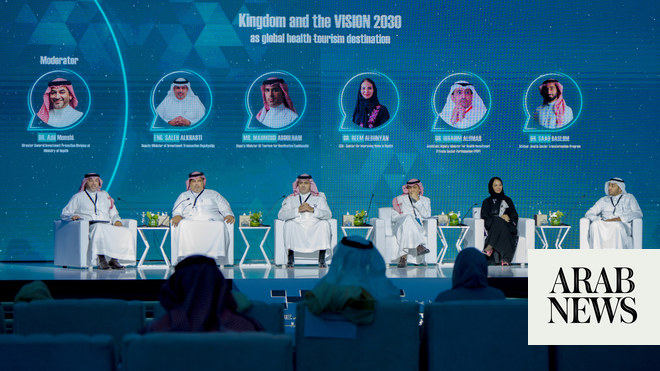RIYADH: Saleh Al Habti, Deputy Minister of Saudi Arabia’s Ministry of Investments and Trade, said the healthcare sector’s contribution to Saudi Arabia’s gross domestic product will reach approximately $66.6 billion and create more than 245,000 jobs by 2030. It is expected that
Al Habti shared this information during a panel discussion titled “The Kingdom and Vision 2030 as a Global Health Tourism Destination” at the Health Tourism Future Forum, which began in Riyadh on Sunday.
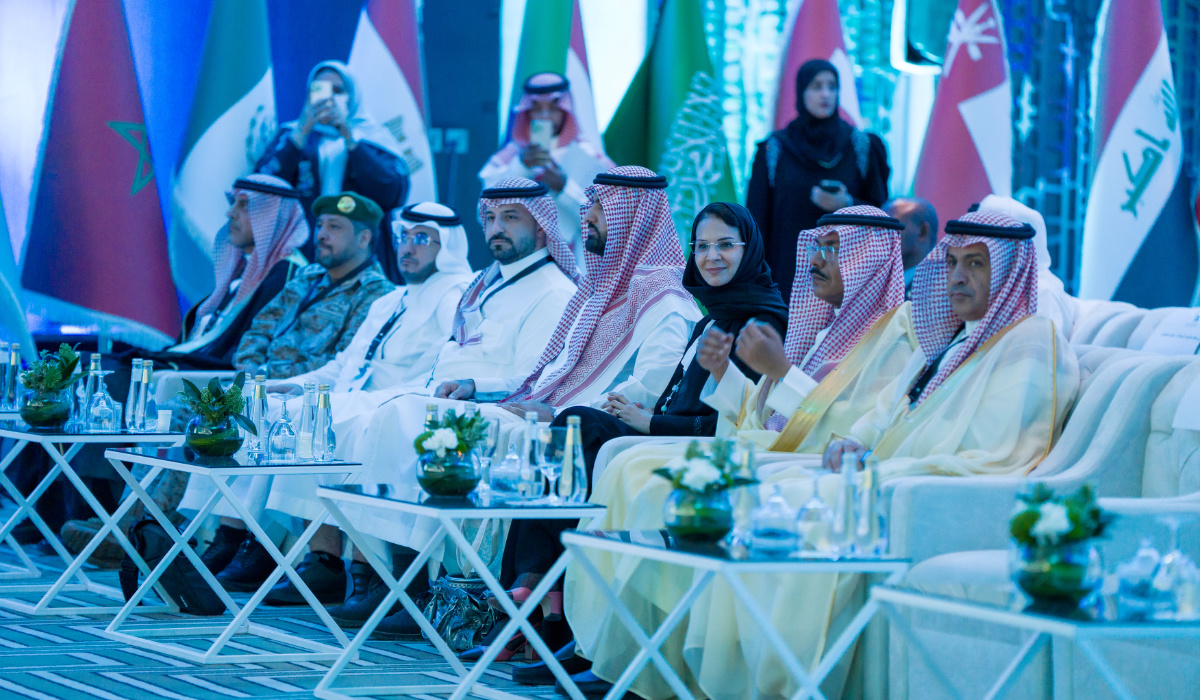
The three-day event will feature presentations, workshops, a young researcher forum, business conferences, seminars, and interactive sessions. (AN photo provided by Huda Bashatah)
Health Tourism Clubs and Health Tourism Associations, in collaboration with the Global Healthcare Travel Council, have launched a forum to identify priorities and redefine the vision for health tourism at regional and international levels.
The forum, which this year coincides with the eighth anniversary of Saudi Arabia’s Vision 2030, is an annual global platform for the health tourism industry aimed at developing future strategies for the Saudi healthcare sector. The global healthcare industry is estimated to be worth $4.4 trillion.
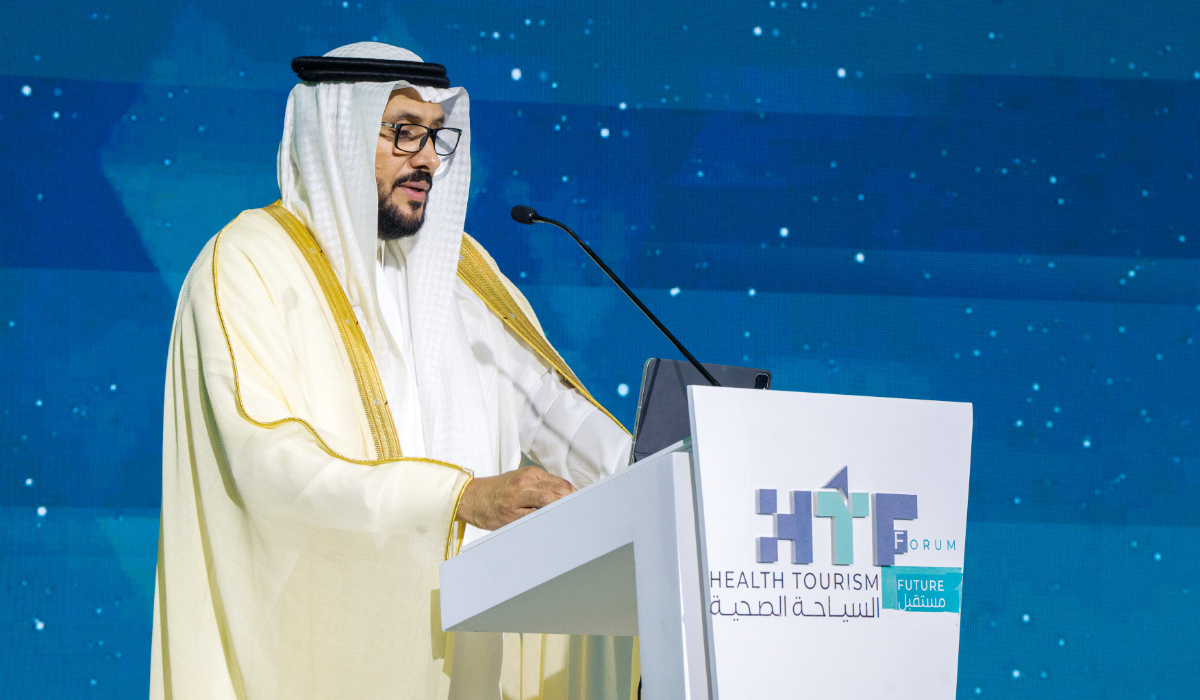
Ahmed Al-Oulaidi, President of the Health Tourism Association, said the forum marks the birth of the first professional health tourism initiative. (AN photo provided by Huda Bashatah)
Al Habti said significant investment is needed in the Saudi healthcare sector over the next seven years, much of which will be driven by the National Investment Strategy.
“In terms of foreign direct investment, Saudi Arabia reached around $19 billion, a threefold increase since 2017,” he said.
Ahmed Al-Oulaidi, President of the Health Tourism Association, said the forum marked the beginning of the first professional health tourism initiative.
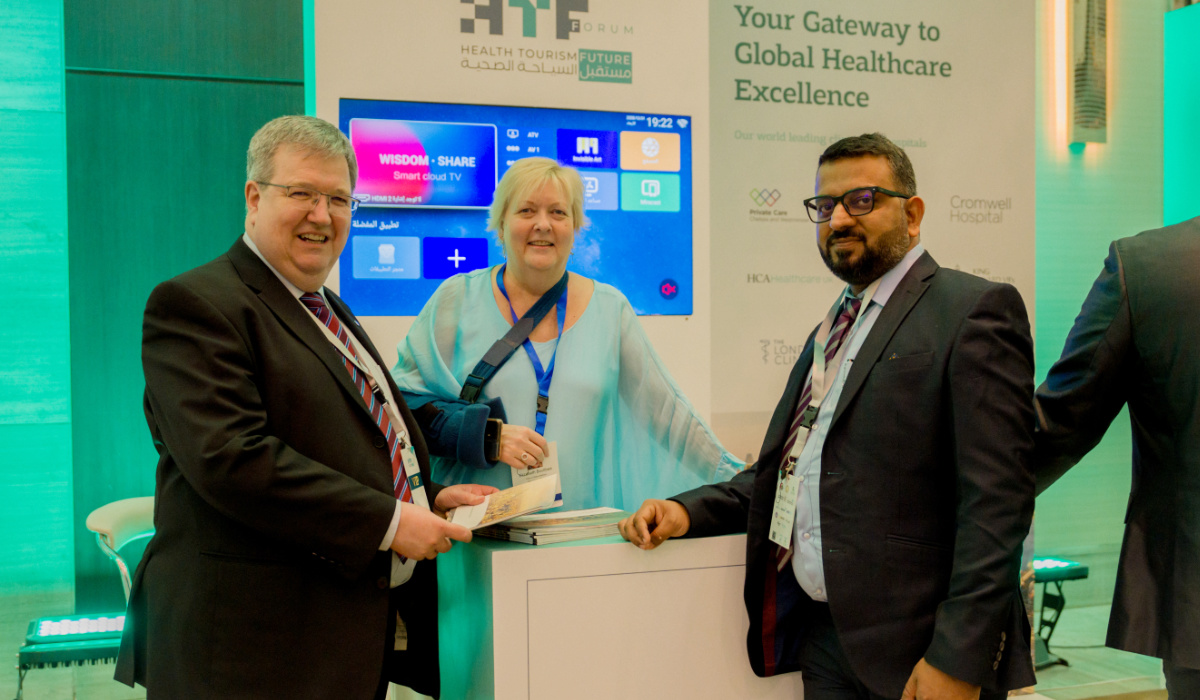
Healthcare London is a collaboration of nine healthcare providers (23 hospitals), including the Cleveland Clinic and Imperial College. (AN photo provided by Huda Bashatah)
Health tourism involves individuals traveling to another country for medical and wellness services. This field has grown rapidly in recent years due to increasing healthcare costs in many countries and advances in medical technology and expertise in certain regions.
Mahmoud Abdulhadi, Deputy Minister of Tourism in charge of destination realization, said Saudi Arabia’s tourism industry has made significant progress and surpassed the target of 106 million visitors seven years ahead of schedule.
“Total tourist spending was approximately $66.6 billion, making a direct contribution to the economy,” Abdulhadi said.
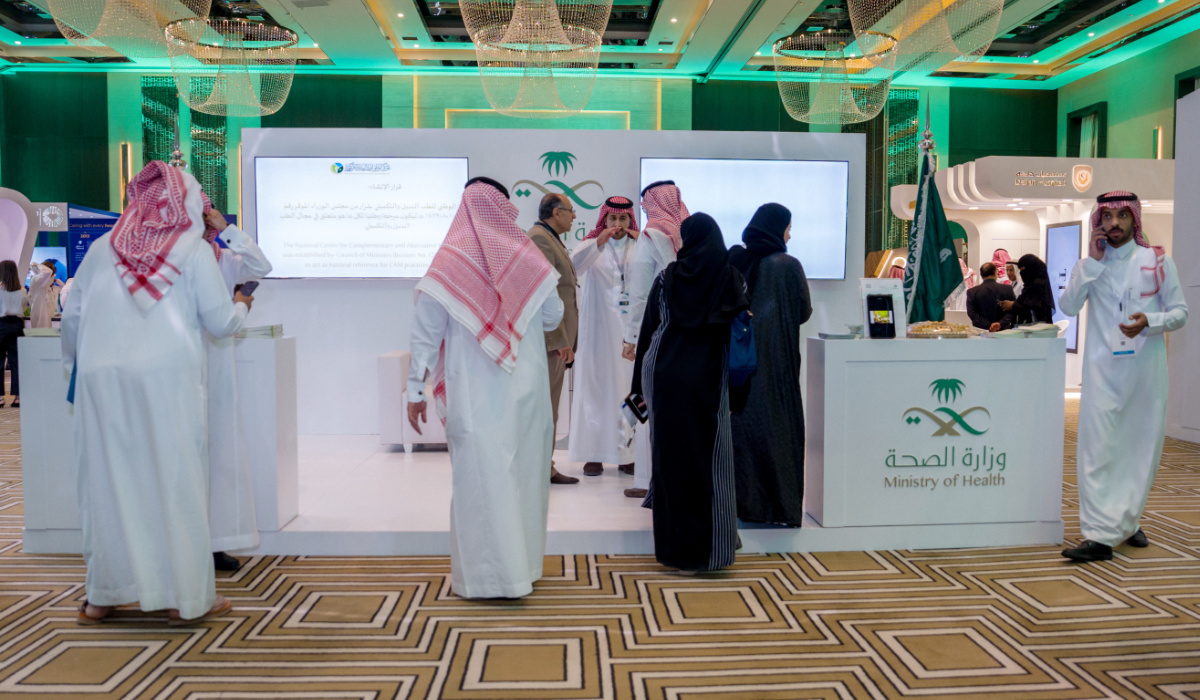
The three-day event will feature presentations, workshops, a young researcher forum, business conferences, seminars, and interactive sessions. (AN photo provided by Huda Bashatah)
The Deputy Minister also said that around 10% of the world’s total employment is in tourism or tourism-related sectors. In Saudi Arabia, tourism contributes 4% to the country’s GDP.
“Tourism is a major contributor to Vision 2030 because it creates jobs. When we started in 2019, the sector had 600,000 employees; today it has grown to 925,000. Masu.”
Abdulhadi added that given the current trajectory, increasing the number of employees to 1.6 million by 2030 appears on target.
“Leisure is now the second largest source of our visits, after spiritual visits to holy places and a fast-growing sector,” he said.
Conversely, only a small portion of visitors to the Kingdom travel for medical or health purposes.
“The reason may be that health tourism is not marketed well or in the right way,” Abdulhadi said.
Although the health tourism sector is still in its infancy, Abdulhadi believes there is a strong domestic market or potential for wellness and health tourism.
Health tourism ranges from medical care to wellness services. Abdulhadi said, “On the technical side, there are people who come to treat a specific ailment, but on the soft side, there are people who come for what a spa experience is like in a nice destination.” he said.
He said that while certain destinations are suitable for potential wellness services, it is important to have the right infrastructure in place.
At an exhibition accompanying the conference, Healthcare London, a collaboration of nine healthcare providers, announced its official launch.
It was established to enable more international patients to access the treatment that London’s leading private healthcare providers and NHS teaching hospitals can provide.
Michael Barker, Project Manager at Healthcare London, told Arab News: “Since we started working on Healthcare London, Saudi Arabia has been our number one market, especially because we know Saudi Arabia so well.”
The forum also works to address challenges, propose innovative solutions for sustainable growth, and raise awareness about the need to prioritize health and well-being. This is the culmination of Saudi efforts to promote medical tourism and strengthen the local and global health sector.
The three-day event will include presentations, workshops, a forum for young researchers, discussions, business meetings, seminars, and interactive sessions. This activity focuses on aspects of medical tourism such as innovation, investment, marketing and law.

